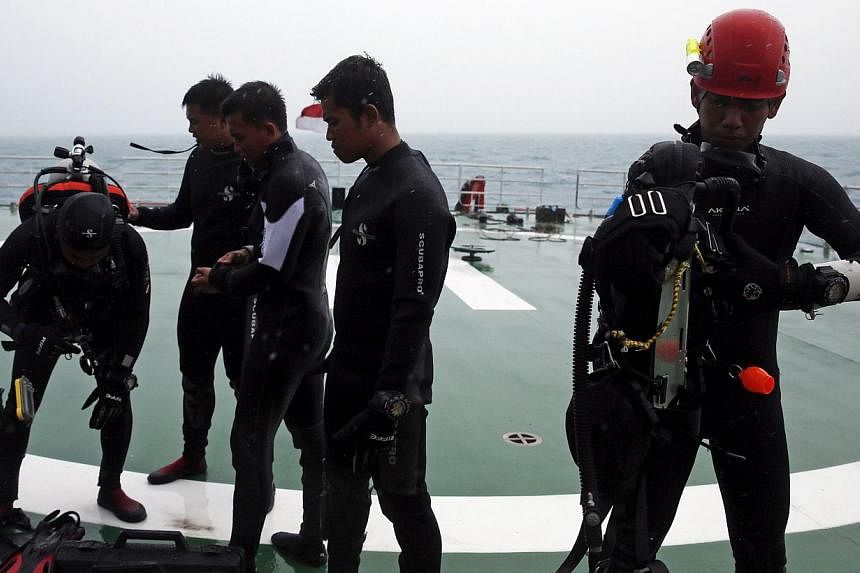Search teams will focus on looking for the black box flight recorders of AirAsia Indonesia flight QZ8501, now that debris and bodies have been found in the Karimata Strait off the coast of Borneo.
Search efforts are underway to find the black box of the plane which went down in the Java Sea with 162 people on board during its journey from Surabaya to Singapore on Dec 28. Finding the black box, which contains recorded information on the plane's final moments, will provide investigators clues to what could have happened.
To find these black boxes, investigators listen for "pings" coming from them. So far, no ping has been detected, and reasons pointed out have been the bad weather and mud.
1. What is a ping?
It is a sound emitted by a device called the Underwater Locator Beacon that is fitted to the flight recorders found in the black box of a plane. The sound, which is inaudible to humans, helps investigators track the black box of a plane. The underwater locator beacon is also called an emergency locator beacon, or pinger.
2. How does the ping get heard?
The beacon gets activated once it is is submerged underwater. According to a user manual for such beacons, it transmits an acoustic signal (the ping) at 37.5 kHz once every second. The pinging usually lasts 30 days after activation with a standard lithium battery. The ping is then picked up by a pinger locator. Pings can typically be picked up from about 3,000m to 6,000m away.
3. What is a pinger locator?
There are different kinds of pinger locators. Examples include the towed pinger locator, which is pulled by a vessel slowly, and the unmanned automonous underwater vehicle. The towed pinger locator is equipped with a sensor that recognises the pings up to 20,000 ft (6,100m) below the water surface. The autonomous underwater vehicle, which works like a robot, takes six times longer to cover the same area as the towed pinger locator, according to Reuters.
4. What makes it difficult to hear a ping?
The sound can be obscured by weather, noise or silt, CNN news reported. Given that the AirAsia plane crashed in shallow seas, experts say finding the boxes should not be difficult if the pingers, with a range of 2,000m to 3,000m, are working. The chief of Indonesia's search and rescue agency Basarnas, Bambang Soelistyo, said: "Our challenge is mud. Lots of mud at the sea bottom."
The weather also remained a problem. Reuters also reported that strong winds and 4m-high waves have kept progress "agonisingly slow".
5. Does a ping always lead to the location of the black box?
No. In the case of Malaysia Airlines flight MH370 which went missing on March 8 as it flew from Kuala Lumpur to Beijing, four pings were detected, and they were believed to be from the missing plane's black box.
A search area was established based on the pings, but no black box was found. It was later decided that the area was not the "final resting place" of the plane. To date, no trace of the plane has been found and there is no explanation for its disappearance.
6. Can a black box be located even after the pinging stops?
Yes. The black boxes of Air France Flight 447 was found after their ping had expired. Two years after the plane went missing in 2009, the black boxes were found deep in the middle of the Atlantic Ocean. They were located by autonomous underwater vehicles. The flight, with 228 people on board, went missing over a large body of deep water. Search-and-rescue operations found debris and some of the bodies in the weeks following the crash, but the main wreckage and black boxes only much later. On the positive side, the depletion of the battery will not wipe out data. Data has been known to survive for years in harsh sea water conditions on modern recorders.
Sources: Reuters, CNN, The Straits Times, TeledyneBenthos



